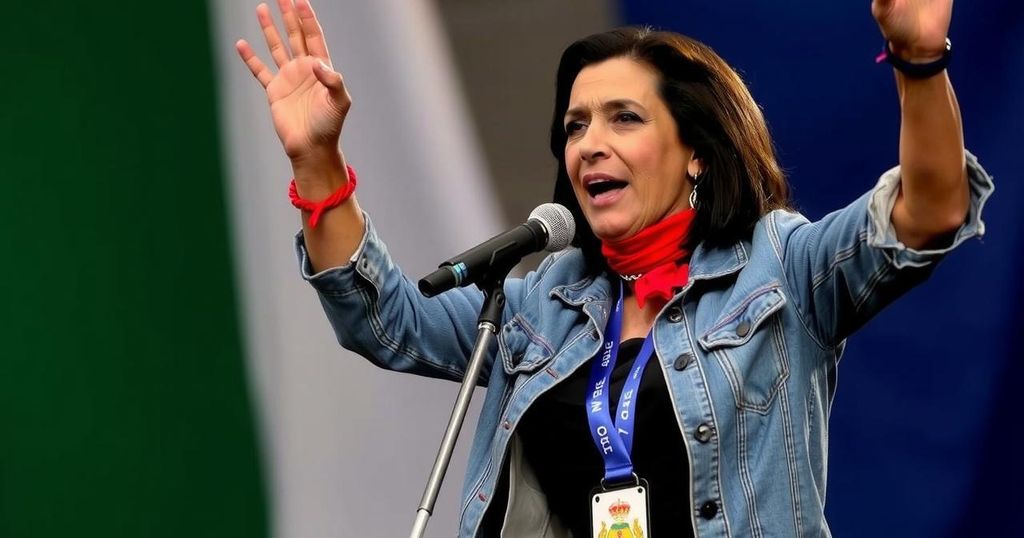Yamandú Orsi Elected President of Uruguay in Significant Political Shift
Yamandú Orsi, a left-wing candidate from the Frente Amplio coalition, has won the presidential election in Uruguay, reflecting a shift from five years of conservative governance. Securing 1,123,420 votes against Álvaro Delgado’s 1,042,001, Orsi aims to address national issues like crime and economic recovery while promising a moderate approach to change. The election was marked by significant public and political support, including endorsements from former president José Mujica.
On November 24, 2023, Yamandú Orsi, a left-wing politician representing the Frente Amplio (Broad Front) alliance, was declared the new president of Uruguay, marking a significant electoral shift away from five years under conservative governance. This closely contested election saw Orsi securing 1,123,420 votes, surpassing his opponent Álvaro Delgado, who garnered 1,042,001 votes. Orsi expressed his commitment to fostering national dialogue in his victory speech, while Delgado gracefully acknowledged his defeat and extended his congratulations.
Despite the electoral changes, analysts anticipate a moderate continuity in Uruguay’s economic policies as Orsi had previously indicated that the forthcoming changes would not be radical. Both candidates had promised to confront the challenges posed by rising crime, notably drug-related incidents, and to stimulate economic recovery from the downturn exacerbated by the Covid-19 pandemic and severe drought conditions. Throughout the country, particularly in Montevideo, Orsi’s victory was celebrated by supporters, especially following endorsements from prominent figures like former president José “Pepe” Mujica.
The political landscape is set to shift once again as Uruguay returns to left-leaning leadership after the conservative Nacional Party had previously taken power. During its prior tenure, the Frente Amplio enacted progressive social reforms, including the legalization of abortion and same-sex marriage. However, concerns regarding rising crime and economic challenges had led to the conservatives’ victory in the previous elections. Following the October legislative elections, Orsi is expected to lead with a Senate majority, though the Frente Amplio remains in the minority within the Chamber of Representatives.
The recent elections in Uruguay represent a pivotal moment in the nation’s political history, as it transitions from five years of conservative rule back to left-wing governance. This is significant given that the Frente Amplio coalition had previously held power for over a decade, implementing various progressive reforms. The election results not only reflect public sentiment toward security and economic stability but also the urge for social advancements that marked Uruguay’s legislative history during leftist rule.
In conclusion, Yamandú Orsi’s election as President of Uruguay signals a public desire for a return to leftist governance after five years under conservative leadership. While the victory suggests potential policy shifts, analysts expect continuity in economic direction. Orsi’s commitment to national dialogue and fostering social reforms is indicative of the Frente Amplio’s progressive agendas that shaped Uruguay’s modern political landscape.
Original Source: www.lemonde.fr




Post Comment